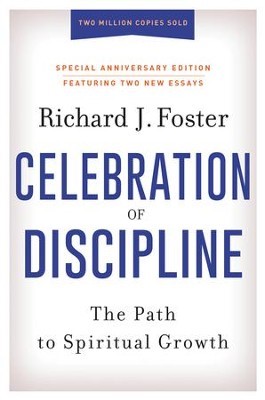Click here to return to Blog Post Intro

Nowhere does the New Testament prescribe a particular form for worship. When Spirit touches spirit, the issue of forms is wholly secondary. To say that forms are secondary is not to say that they are irrelevant. As long as we are finite human beings, we must have forms. We must have “wineskins” that will embody our experience of worship. But the forms are not the worship; they only lead us into the worship. We are free in Christ to use whatever forms will enhance our worship, and if any form hinders us from experiencing the living Christ—too bad for the form.
You shall worship the Lord your God and him only shall you serve. – Matthew 4:10
If the Lord is to be Lord, worship must have priority in our lives. The first commandment of Jesus is:

The divine priority is worship first, service second.
Today God is calling his Church back to worship. This can be seen in high church circles where there is a renewed interest in intimacy with God. It can be seen in low church circles where there is a renewed interest in liturgy.
A vital feature of the early Christian community was their sense of being “gathered” together in worship. First, they were gathered in the sense that they actually met as a group, and second, as they met, they were gathered into a unity of spirit that transcended their individualism.
Martin Luther witnesses to the fact that “at home, in my own house, there is no warmth or vigor in me, but in the church when the multitude is gathered together, a fire is kindled in my heart and it breaks its way through.”
Genuine worship has only one Leader, Jesus Christ. George Fox said, “Meet together in the Name of Jesus…He is your Prophet, your Shepherd, your Bishop, your Priest, in the midst of you, to open to you, and to sanctify you, and to feed you with Life, and to quicken you with Life.”
One reason worship should be considered a Spiritual Discipline is because it is an ordered way of acting and living that sets us before God so he can transform us. We are to live in a perpetual, inward, listening silence so that God is the source of our words and actions. If we are accustomed to carrying out the business of our lives in human strength and wisdom, we will do the same in gathered worship.
François Fénelon wrote, “Happy the soul which by a sincere self-renunciation, holds itself ceaselessly in the hands of its Creator, ready to do everything which he wishes; which never stops saying to itself a hundred times a day, ‘Lord, what wouldst thou that I should do?’”
The scriptural admonition is, “The LORD is in his holy temple; let all the earth keep silence before him” (Habakkuk 2:20). The desert Father Ammonas wrote, “Behold, my beloved. I have shown you the power of silence, how thoroughly it heals and how fully pleasing it is to God… It is by silence that the saints grew…it was because of silence that the power of God dwelt in them, because of silence that the mysteries of God were known to them.”
Praise is another avenue into worship. The Psalms are the literature of worship and their most prominent feature is praise. “Praise the Lord!” is the shout that reverberates from one end of the Psalter to the other. Singing, shouting, dancing, rejoicing, adoring—all are the language of praise. Scripture urges us to “offer the sacrifice of praise to God continually, that is, the fruit of our lips, giving thanks to his name” (Hebrews 13:15).
Singing is meant to move us into praise. It provides a medium for the expression of emotion. Through music we express our joy, our thanksgiving. No less than forty-one psalms command us to “sing unto the Lord.”
God calls for worship that involves our whole being. The body, mind, spirit, and emotions should all be laid on the altar of worship. Often we forget that worship should include the body as well as the mind and the spirit. The Bible describes worship in physical terms. The root meaning for the Hebrew word we translate worship is “to prostrate.” The word bless literally means “to kneel.” Thanksgiving refers to “an extension of the hand.”
Steps into Worship

- Learn to practice the presence of God daily. Really try to follow Paul’s words.
- Use many different ways of worship. Worship God when you are alone. Have home groups not just for Bible study, but for the very experience of worship itself. Gather little groups of two and three and learn to offer up a sacrifice of praise.
- Find ways to really prepare for the gathered experience of worship.
- Demonstrate a willingness to be gathered in the power of the Lord.
- Cultivate holy dependency. Holy dependency means that you are utterly and completely dependent upon God for anything significant to happen.
- Absorb distractions with gratitude. If there is noise or distraction, rather than fussing and fuming about it, learn to take it in and conquer it.
- Learn to offer a sacrifice of worship.
You need to be with the people of God and say, “These are my people. As stiff-necked and hard-hearted and sinful as we may be, together we come to God.”
Isaac Pennington says that when people are gathered for genuine worship, “They are like a heap of fresh and burning coals warming one another as a great strength and freshness and vigor of life flows into all.”
Willard Sperry declares, “Worship is a deliberate and disciplined adventure in reality.”
So go, even if you don’t feel like it. Go, even if worship has been discouraging and dry before. Go, praying. Go, expecting. Go, looking for God to do a new and living work among you.

